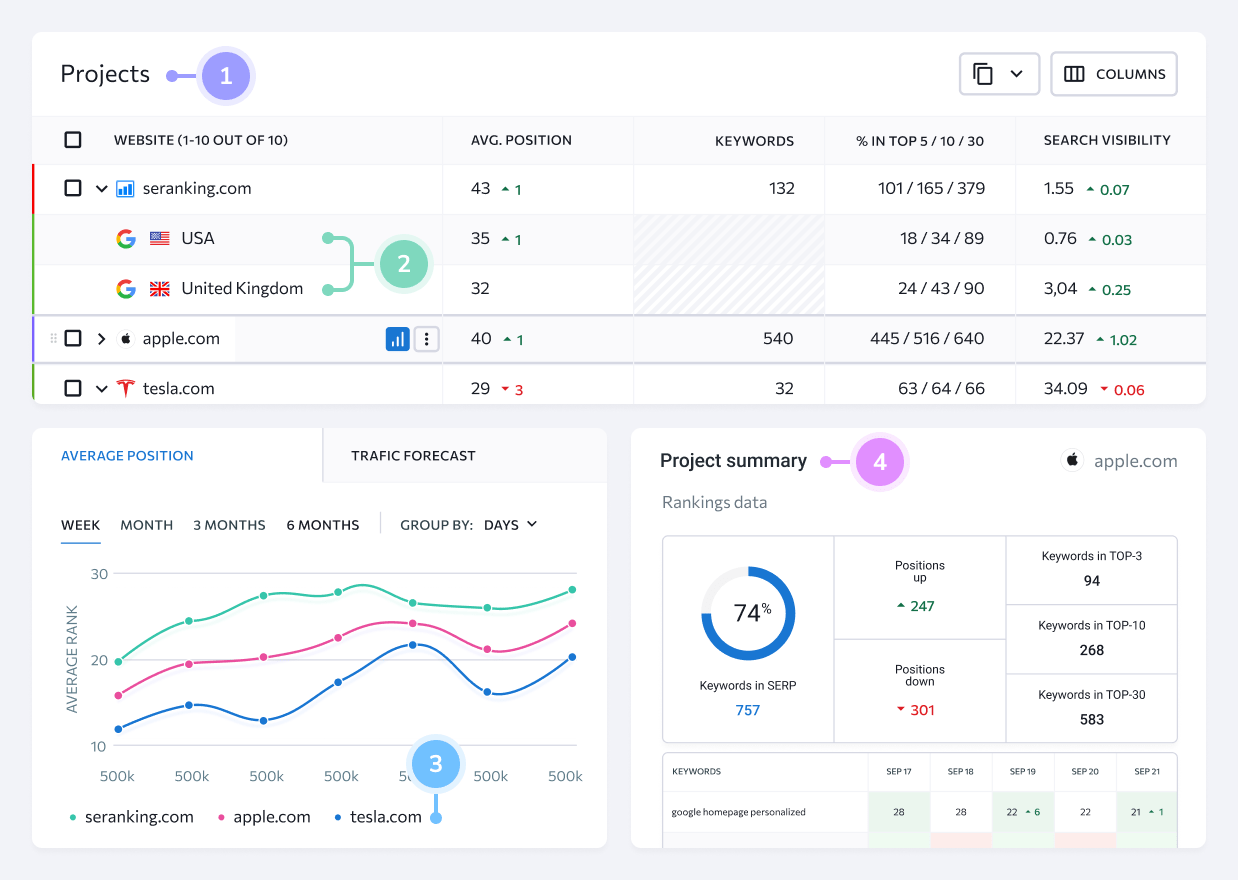Bragging Rights
Explore the latest trends, tips, and stories that make you stand out.
Climbing the Google Ladder: How to Boost Your Keyword Game
Unlock the secrets to mastering SEO and skyrocket your keyword rankings with our essential guide!
10 Proven Strategies to Enhance Your Keyword Research
Keyword research is a critical component of SEO that directly influences your content strategy and overall visibility. Here are 10 proven strategies to enhance your keyword research:
- Utilize Keyword Research Tools: Leverage tools like Google Keyword Planner, SEMrush, or Ahrefs to uncover high-traffic keywords within your niche.
- Analyze Competitor Keywords: Examine your competitors' websites to identify the keywords they rank for and consider targeting similar terms.
- Long-Tail Keywords: Focus on long-tail keywords which often have less competition and can drive targeted traffic to your site.
- Search Intent: Understand the search intent behind keywords to create content that truly meets user needs.
- Use Google Autocomplete: Take advantage of Google’s autocomplete feature to generate keyword ideas based on popular searches.
In addition to these strategies, consider the following:
- Check Related Searches: Explore the related searches section at the bottom of Google’s search results page for additional keyword inspiration.
- Leverage Social Media: Social platforms can help you discover trending topics and keywords relevant to your audience.
- Monitor Trends: Keep an eye on industry trends using Google Trends or other trend-monitoring tools.
- Optimize for Local SEO: If applicable, integrate local keywords to attract nearby customers exceptionally.
- Continuous Review: Regularly revisit and update your keyword strategy to adapt to changing market conditions and user behaviors.

The Ultimate Guide to On-Page SEO: Mastering Keywords for Better Rankings
When it comes to on-page SEO, mastering keywords is essential for improving your website's rankings on search engines. Begin by conducting thorough keyword research to identify the terms and phrases that your target audience is searching for. Tools like Google Keyword Planner and Ahrefs can help you uncover valuable data on search volume, competition, and relevancy. Once you have your list of keywords, strategically place them in key areas of your content, including the title, meta descriptions, and header tags. This will not only enhance your visibility but also provide context for search engines to better understand your content.
In addition to proper placement, it's crucial to ensure that your content remains engaging and informative. Aim for a keyword density of around 1-2%, and always prioritize quality over quantity. Use synonyms and related phrases to avoid overstuffing keywords, as this can negatively impact your SEO efforts. Incorporating internal links and optimizing images with alt tags further enhances the overall on-page SEO strategy. By diligently implementing these practices, you set a solid foundation for driving organic traffic and improving your site's rankings.
How to Use Long-Tail Keywords to Climb the Google Ladder
In the world of SEO, long-tail keywords are your best friends when it comes to climbing the Google ladder. Unlike generic keywords that can be highly competitive, long-tail keywords are more specific phrases that typically have lower search volumes but higher conversion rates. For instance, instead of targeting a broad keyword like 'shoes,' you might focus on a long-tail keyword such as 'comfortable running shoes for flat feet.' This strategic approach not only helps you rank higher on search engines but also attracts a more targeted audience looking for exactly what you offer.
To effectively incorporate long-tail keywords into your SEO strategy, start by conducting thorough keyword research. Tools like Google Keyword Planner or Ubersuggest can help you identify phrases that your target audience is searching for. Once you've selected your long-tail keywords, weave them naturally into your content, including headings, meta descriptions, and alt text for images. Remember, the key is to maintain a natural flow in your writing while ensuring that these keywords resonate with your audience’s needs. By consistently using targeted long-tail keywords in your blog posts, you'll not only improve your rankings but also enhance your content's relevance.